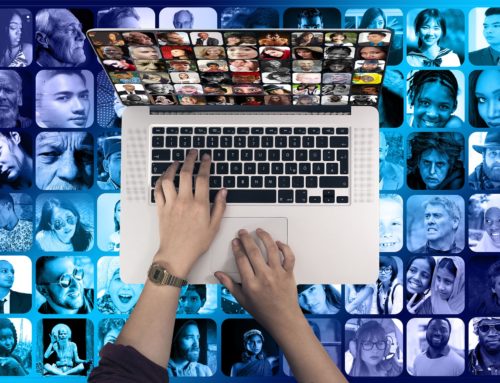 This was originally published on Spin Sucks as a guest post
This was originally published on Spin Sucks as a guest post
Are you suffering from what I call KJS, or Knee Jerk Syndrome?
I know I have to watch out for it.
Social is great.
I love social.
And yes, even though countless folks (including myself) have railed against that as a misnomer, I’m guessing we’ll keep calling it social until we can collectively come up with a better name for it.
Social lets us connect with people almost immediately.
Scratch that””immediately.
Social lets us rave immediately.
Rant immediately.
Diss someone immediately. Ravage a blog post immediately.
With all this immediacy at our fingertips, are we losing the art of reflection?
Are we losing the ability””or the desire””to think?
Used to be, when we didn’t feel the need””or have the ability””to respond immediately to something, we (or, at least, most mature adults) would take the time to absorb the messages we were receiving.
Think about the news we were hearing.
Delve deeper into whether what we were being told was, in fact, true.
And then… only after thinking something through, we’d respond.
Now, however, we can respond to what we see, hear, are told, immediately.
It’s not just that we can that is leading us to do so.
It’s also that those who do are likely to get their responses picked up more quickly, shared more quickly, and perhaps gain prominence more quickly.
Be considered “thought leaders.” “Pioneers.” “Influential.”
Immediacy is not always a bad thing.
After all, the lightning speed at which brands and organizations respond is often what people respond to””I know I do.
How quickly they pick up on acclaim as well as criticism can make or break their perception, and set the course for whether they will suffer a dent in their reputation or, rather, transcend it.
But what sets these brands apart from the rest is that they’ll do their due diligence in trying to figure out what’s going on, and then respond.
They may not have a couple of days, or a day, or more than a few hours to do it, but they will try to figure out what’s going on first… without giving in to KJS.
Can you and I say the same about ourselves? Truly?
Like when Bill Cosby died. (He didn’t).
Or when Brad Pitt was on campus. (He wasn’t).
Much has been written about how social might be the precursor to us losing our humanity.
I’m not in that camp; I think social gives us amazing ways to connect with each other.
What I sometimes wonder is whether social might cause us to stop
thinking,
reflecting,
contemplating,
to the point where we become click-happy morons.
I certainly hope we don’t.
And not giving in to KJS would be a good place to start.
What do you think?
Image: Mike Atherton via Flickr, CC 2.0








We live in a society where bigger is better, more is better, faster is better. The truth is, only better is better. The question I ask is: Why are people that yearn to be leaders attempting to lead by following pack mentality and feeding their followers merely what the followers expect? That’s pandering, not leadership.
Innovators listen to their intuition and if people follow great, if it bombs , there is always next time. The innovator wasn’t wrong, the rest of us just weren’t ready yet.
@barryrsilver “… only better is better.” I LOVE that. Thank you for a GREAT comment!
You know, when I have a visceral, knee-jerk reaction to a post or news update, and I think “Yes! I have something to say!” that’s when I tend to leave for a minute or even a couple hours before returning to put in my piece. I think the excitement to get in on it is what warns me to think before I make a fool of myself one way or another. Not too fond of that, so I tend to heed those gut-checks.
I read somewhere about the different personalities on the web. I think the one we constantly see and are encouraged to emulate is the one with that immediate thought, immediate comeback, immedate rumor retweet. People like this are sometimes delightful, sometimes obnoxious, and always engaging.
But not all of us fit that type (notice the switch from third-person to first-person plural here :)). I’d say there’s a huge number of people who don’t appear to engage on social media regularly, but are present more than we realize, analyzing, thinking, making conscious decisions to make a move. I’d say that, but I have no way of knowing for sure, do I? :)
What I’m getting at, I think, is that it may not be that we as a whole are losing the ability to stop and wait, but that even the lurkers among us feel pressured to react to such an overwhelming through-put of info and interaction more impulsively than we might otherwise.
Thanks for making us think about this, Shonali. And, um, what’s KJS?
@shakirah_dawud I love that you explain your grammatical switches in the middle of your comment. :p
“I’d say there’s a huge number of people who don’t appear to engage on social media regularly, but are present more than we realize, analyzing, thinking, making conscious decisions to make a move.” I think you’re absolutely right, and many of today’s business leaders are these people. Because they don’t make a lot of “noise” in SM, they can go unregarded, which is a huge mistake.
KJS is “knee jerk syndrome.” :p
@Shonali My brain just could not make the quantum leap, Shonali, thanks! Duh!